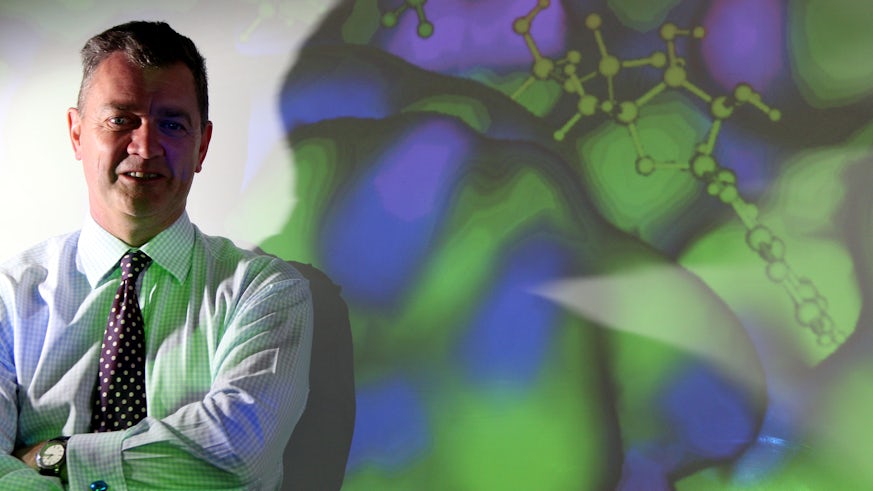Professor Chris McGuigan 1958-2016
14 Mawrth 2016

Tribute from Professor Gary Baxter, Head of School of Pharmacy and Pharmaceutical Sciences, Cardiff University
With the sudden passing of Chris McGuigan, the University has lost one of its most charismatic citizens, a world-leading researcher and inspiring teacher. Chris was a medicinal chemist of exceptional talent and achievement. Anyone who had the privilege of working with Chris, or who heard him lecture in drug discovery, was struck quickly by his fervour for the subject of his life’s work. To say he was successful in this endeavour is to woefully understate the reality. It is rare for an academic scientist in the field of drug discovery to see one invention reach the stage of clinical trial but Chris saw four of his compounds advance to human trials. In part, this unusual success could be attributed to the brilliance of Chris’s drug inventions (for the most part phosphoramidate nucleoside derivatives, known as Pro-Tides, designed as anti-viral and anti-cancer agents). But much of the success was due to his inexhaustible drive and ambition to achieve clinical translation. His grasp of the complexities of the drug invention process, from design, through preclinical and then human studies, and of the intellectual property processes required to translate the inventions, was masterful. Chris was by no means an “ivory tower” scientist.
His understanding of the commercial drivers for success, as well as the scientific drivers, was total. I am sure this understanding and experience contributed to his early appreciation of “impact” at a time, in the early years of the last REF cycle, when relatively few in the higher education sector really understood the meaning of impact or how it could be assessed. That appreciation of wider societal benefit of research was an inherent motivator for Chris as an individual scientist and one from which the University benefitted immensely as it began to draw together its highly successful impact cases for REF2014.
Chris’s “connectedness” and, more importantly, his ability to connect at the individual level were intrinsic features of his outgoing personality and the way that he enjoyed working. He was undoubtedly a mover and shaker within the academic, industrial and even political spheres that he inhabited. His astute ear, lightening intellect and emotional intelligence singled him out as someone who could be relied on to lead and advise soundly on any complex and important issue. But his unfailing courtesy, good humour and lightness of touch when appropriate, touched all who met him.
Although an internationally recognised and influential figure, with what some might regard as the attributes of professional celebrity, Chris was happiest en famille. His wife Maria, and the girls Phoebe and Grace, were at the centre of his life: to enjoy time and hospitality with them was an unforgettable pleasure for the many people they counted as friends. Many of us in the School and the University have lost a friend as well as a loyal and trusted colleague and mentor. The sense of profound and unexpected loss is felt very widely.